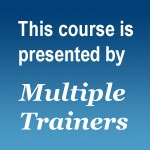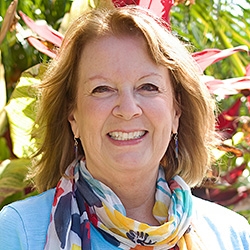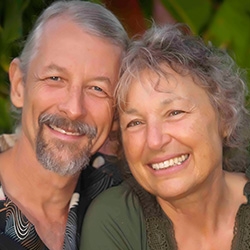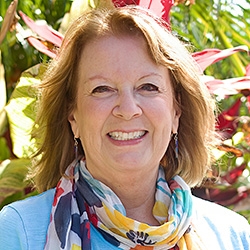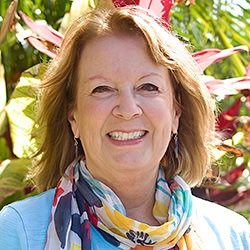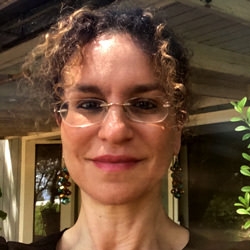

Search Results: acceptance
-
In some situations you might expect people to show a degree of maturity or skill. When they don't, your anger-fueled response doesn't lead to lasting improved relationship change. Instead, find someone who retains focus on your feelings and needs rather than colluding with you about what should(n't) be. This can support greater acceptance, grief, vulnerability, groundedness and discernment, from which next steps can arise.
-
Is it tough to see a loved one go through hardship? May you have tension building up inside and draw a rigid boundary, or feel the urgency to swoop in and try to “rescue” them with advice, consoling, cheering up, analyzing, or explaining? Instead, relax your body. Invite your emotions to flow with acceptance. Notice inner peace and expansion. See this person as someone on a journey to awakening with all its painful and joyful twists and turns.
-
Ask the Trainer: Can NVC transform group conflict? Trainer shares stories and answers the question.
-
Strengthen empathy, goodwill, and authenticity at home, meeting life's challenges with grace.
-
Differing worldviews can lead to conflict, discover pathways to greater understanding.
-
Trainer tip: Empathy is about being present to a person’s feelings and needs. It is acknowledging another’s experience, not necessarily agreeing with it. If you have a different opinion than another, empathize with her first. Then, state your feelings and needs with regard to the situation.
-
- Wish you knew how to align your organization with its purpose and values?
- Want to increase your capacity to live in integrity with your values, too?
- Concerned about the level of engagement within your organization?
- Yearn to connect to a sense of meaning in your life during this time of global crises?
- Long to discover what is yours to do – and wish you knew how to leverage the resources you have in response to what is needed?
-
Observation is the awareness of our sensory perceptions and thoughts, separate from evaluations and judgments. Feeling involves bodily sensations and emotions, distinct from "faux feelings" that mix thought and emotion. Needs encompass universal human requirements for survival and wellness, while thoughts and evaluations express needs. Requests are rooted in connection and invite true willingness, rather than demanding compliance.
-
Observation is the awareness of our sensory perceptions and thoughts, separate from evaluations and judgments. Feeling involves bodily sensations and emotions, distinct from "faux feelings" that mix thought and emotion. Needs encompass universal human requirements for survival and wellness, while thoughts and evaluations express needs. Requests are rooted in connection and invite true willingness, rather than demanding compliance.
-
- Understand the dynamics of power struggles
- Explore practical strategies for navigating power imbalances
- Discover ways you can share power in various relationships
- Explore how NVC supports a move away from domination, into shared power
-
It may be challenging to hear or make requests when you feel shame regarding anyone's feelings and needs. Without support, shame could be debilitating, so you may feel resistant and become defensive, hear threat, or criticize others. Instead, be with people who allow space for vulnerability. Find ways to celebrate, negotiate, be mindful, accepting, and creative.
-
The human species is trained and habituated towards separation. This model encourages humans to either give up on their needs or fight for their needs. In this short video, Miki shares how increasing capacity shifts habits of separation and supports holding of all needs. Through intensive lifelong practices we learn to increase our capacity to receive and to increase our capacity to be generous supports our overall capacity to hold all needs.
-
This chart helps translate words that imply blame into true feelings and unmet needs.
-
Can you give me advice on what to do when people won't talk to me? I find it very difficult to discover what their needs are that aren't being met! Also, how can I be effective with people who don't actually want to think about why they're being the way they are?
-
Inbal answers a parent's question about praise and offers a perspective on how praise translates into the NVC framework.
-
Trainer Tip: Giving up on blame and taking responsibilty for our choices is immensely empowering. Mary offers a tip for growing in this direction.
-
Recently, I have been pondering anger, how I express it and the jackal story I tell myself about it. Marshall Rosenberg taught that anger is a natural emotion that is based on a judgment of someone else or myself. I agree with this, so I have been doing some “enemy images” and self-empathy work (and praying for those who are most likely to be the recipients of my anger). My goal was to clear my judgments and take responsibility for my “stuff.” It has helped a lot, and yet I still feel a general anger in me that is not directly related to anyone or any specific situation.
-
Join Eric, as he reveals a clear path from heartbreaking intimate relationships to joyful, thriving intimate relationships. Eric uses his passion for helping singles heal from their past relationships, to help you to experience more ease, joy and mutuality in future relationships.
-
This anecdote illustrates how a young man had the social awareness to consider how male conditioning may bring up competitiveness in his interactions with another man. The young man offered transparency and checked for consent in a way that shows an embodiment of power-with, togetherness, consideration, care, collaboration... and all without displaying any formal NVC training, and without looking to impress.
-
Discussion into the difficult topic of parenting, childhood trauma, and social status.

Quick Links
Subscription Preferences
Stay In Touch!
Looking for ways to keep up with NVC Academy news, get special offers, free resources, or words of inspiration? Here are five ways to stay engaged:





